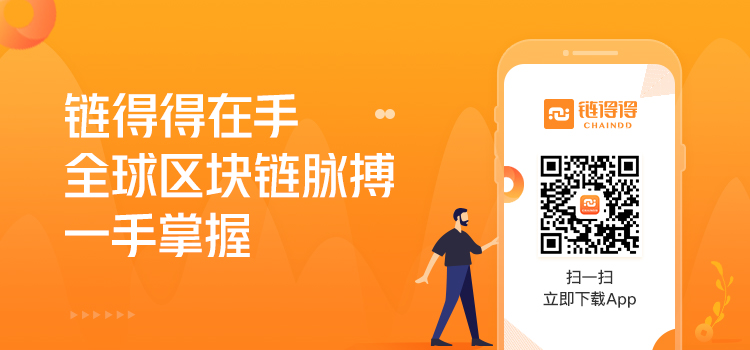【链得得独家】专访LinkedIn联合创始人:如何用区块链技术颠覆社交网络
摘要: 少数极其强大的中心化互联网公司有能力运用巨量规模的权力,将用户大量数据肆意商品化。而区块链技术,可以将权力重新放回用户手中。
上周,在参议院情报委员会听证会结束之际,权威调查机构公布的数据又给Facebook迎头一击。美国统计公司Pew Research Center对超过3,400名美国Facebook用户进行了调查,结果显示,在18到29岁的人群中,高达44%的人表示他们去年从手机中删除了该应用程序。总体而言,26%的受访者表示他们删除了应用程序,而42%的人已经“放弃使用”了几周或更长时间,54%的人调整了他们的隐私设置。

Facebook和剑桥分析公司(Cambridge Analytica)的丑闻事件渐让公众意识到,对整个社会的正常运行而言,社交媒体上强有力的数据保护规则何等重要。Facebook在过去一年的时间里,也一直在努力解决与滥用平台数据信息有关的一系列丑闻。这些丑闻也严重影响了Facebook的财务状况。该公司的股票在7月份的一天内暴跌超过20%,此前Facebook曾表示其广告费用增长放缓以及与打击虚假信息相关费用的增加。
扎克伯格在两场听证会上遇到的各类质询,也是全球互联网行业巨头所面临的质疑的缩影。针对垄断性平台使用数据方式的剥削性,区块链公司Hub的首席执行官和LinkedIn前联合创始人Eric Ly表示,“少数极其强大的集中化互联网公司正在做一些技术上让人们不理解的东西,他们有能力运用未知数量的权力努力搜集用户的大量信息并将之商品化。”
为了保护用户的数据,Eric认为个人数据应该与财产一样对待。此外,他还指出数据应该是可移植的,个人有权在各种平台之间删除和移动数据。用户应该完全控制他们的个人数据是有道理的。然而,考虑到大多数社交媒体平台的集中性,这点很难实现。毕竞各大平台都在通过吸引用户注意力和分析用户行为来定点投放广告,这算是目前最 普遍也最成熟的商业模式。他还指出:
集中式社交媒体平台以集中的方式收集和存储用户的数据,仅拥有用户的数据,管理它并提供对其的访问以经常基于定向广告使其商业模式受益。集中式方法不会为用户提供使用其数据的经济利益(通过令牌奖励),也不会让他们的宝贵数据可以从一个平台移植到另一个平台。
如今,区块链技术为社交平台提供了多种方法来克服信息的不准确性和可篡改性。无论是开发区块链网络来跟踪单个节点活动并验证信息,还是将区块链技术集成到激励机制中,该技术都可以帮助社交性互联网平台重新走上正轨。
用户身份验证
社交媒体存在的最大问题之一,是虚假信息的泛滥以及与虚假账户的大规模推广和使用。LinkedIn(领英)网站上存在的身份造假、职业档案造假、职称造假、就业时间造假、学位造假等问题也困扰着招聘官。虽然目前,Facebook和LinkedIn都已采取措施,利用机器学习和人工智能来探索并关闭虚假账户,但在此基础上运用区块链可以更好地促进这些技术的整合。
通过用户信息上链,可以有助于监控用户内容,并创建分析用户群体时间和精力的生态系统。通过精准掌握用户日常生活行为,从而产生全面的用户画像,无比精准的针对用户喜好进行无孔不入的广告投放和增加相似用户的互动。
通过区块链网络跟踪社交的用户身份,用户也可以公开透明地查看信息情况,以确保身份不会被盗用。此外,平台也将能够更好地跟踪和比较各种账户的行为,并管理用户发布的信息。基于区块链技术的身份验证还可以充当垃圾邮件过滤器。如果一个网络来源控制或主导了多个账户,或者某一账户多次向其他用户发送垃圾邮件或虚假信息,区块链可以比机器学习更高效地管理并终止此类活动。
奖励内容创作者
在社交媒体和通讯领域,越来越多的互联网公司希望通过向用户提供可交易或兑换的代币,以吸引他们发布动态和进行其他的互动。
Steem是基于区块链技术的内容型社区,通过Token设计奖励内容创作者。该平台的工作方式与Reddit类似,根据创作者收到的点赞和评论等互动数量给出相应的Token。在这种机制下,用户创造的整体价值大于单个价值的叠加。无论是发帖还是点赞,本身是没价值的,但当他们关联起来,就会体现价值,可以使各类社交媒体能够在没有外部干预的情况下,自发挖掘出优质的内容,而且通过奖励深化某个话题的主题思想。
社交网络平台可以整合类似的区块链内容创建激励系统,其中最高质量的内容创建者会被提供经济奖励以推动大量内容的产出以及积极的参与意识。另一方面,系统还可以跟踪和清除问题较多且经常被社区举报的内容创建者。总体而言,该系统有助于激励用户创建高质量内容,并降低虚假新闻的产出和低质量内容的数量。
分析用户反馈了解产品性能
社交媒体还可以与主要的出版物和内容中心合作,追踪消费者对其文章内容情绪,以确定其出版物内容的质量和任何潜在的偏见。区块链技术还通过赋予用户权力,通过人群的智慧发现真相。区块链技术拥有群体数据,并激励人们调整行动的能力。
跟踪用户的声誉数据
目前,社交平台对用户数据的拥有权完全中心化,由于这些信息的垄断,用户的个人数据在每个平台都具有不完整性,且缺乏可携带性能,所以即使用户已经投入了大量努力来培养在一个社区中的信用,其他社区也无法实现信息转移。要获得对陌生人信用数据的全面了解,需要进行繁琐的调查,涉及到对分散在不同互联网应用上信用数据的组装和比较,费时费力。
Eric Ly创立的Hub是一种人类信任协议,它使用区块链技术来促进互联网上可移植的用户声誉历史。换句话说,该项目侧重于用户对“声誉数据”的控制。
Hub项目的目的是通过允许用户评估跨应用程序的远程可信度来解决虚拟信任问题。任何用户都可以在区块链上存储和访问其信誉信息,例如基于过去交互的实际验证结果。通过建立数字信誉,每个用户都有权决定他们想要在社交网络中显示哪些信誉信息。
Hub上存储的信誉可以在不同的社交网络中移动。例如,使用Airbnb服务的良好声誉与一致的按时租金支付相结合,可以帮助用户获得贷款,因为他们获得的声誉将分散到多个领域。此外,用户还可以决定他们希望在某些用例中显示哪些数据。不同于Facebook和LinkedIn中协议的价值来自提取用户数据,Hub的信任协议的价值在于用户控制的数据分散化。
社交网络可以利用区块链技术跟踪用户以往的声誉并将信息传达给其他的用户。例如,Facebook可以采用类似的方法来分许人们对Facebook的评论并将为信息设置过滤器。例如,如果某用户有在Twitter上曾发布恶意或虚假信息的历史,那么该信息应与他在Facebook上发布的任何内容一起被传达,以让读者全面了解用户数据。
强化支付手段
区块链是可记录交易信息的数字分类账本,数字货币可以帮助增加企业的区块链技术的使用。目前,与金融数据的链接正成为移动互联网公司的重要趋势,据了解,Facebook、亚马逊及谷歌一直觊觎金融支付领域,谷歌曾询问过银行是否能分享类似数据,目的是在谷歌助手和Alexa语音询问中提供基本银行服务。区块链的自有系统可以解决当前无法逾越的敏感问题,通过区块链和加密币建立自己平台上的支付系统和金融数据系统就显得更为重要。
社交媒体巨头拥有自己的加密货币就意味着可以拥有他们自己的经济系统,可以进行任何内容的分发,以及可以通过这些货币来加强或补偿其他实际行为,强化其现有的市场地位。一位与Facebook区块链业务关系密切的知情人士表示,Facebook可以在区块链方面做至少四件事:一是数据存储/安全/分布式网络,二是支付,三是个人用户数据交换/货币化,四是社会内容生成。Facebook甚至可能利用区块链技术与大银行支付网络竞争。
在未来,区块链有可能帮助互联网巨头撬动面向未来的商业模式,重新打造一个除了广告收入外,包含游戏、支付、金融、购物的全方位移动社交帝国。
区块链技术或将撬动社交媒体模式建构
在Facebook的数据丑闻成为头条新闻之前,首席执行官马克扎克伯格曾在Facebook账号中宣布,他2018年的新年决议是探索区块链技术和加密货币的使用。
今年5月,扎克伯格宣布开启自Facebook创办15年来,最大的高管业务重组重组计划:将公司分成三大业务线,并迎合潮流成立了区块链技术部门,团队领导人是去年成为加密货币交易所Coinbase董事的Messenger业务负责人。此举可让人一窥Facebook挺进融资、颠覆华尔街大机构业务的雄心。
扎克伯格称,早在20世纪90年代和21世纪,大多数人都认为技术将成为一种分散的力量。但是今天,许多人对这一承诺失去了信心。随着少数大型科技公司的崛起以及政府使用技术密切观察公民动态,现在许多人认为技术只能集中力量,而不是分散权力。
扎克伯格随后提到,加密货币可以通过将权力重新放回用户手中来帮助解决这些问题。然而,这也将使Facebook失去控制权,但对未来的社交媒体用户来说,这种转变是强大的。
以下为链得得采访LinkedIn 前CTO Eric Ly实录:
Q: Why have you been paying attention to the blockchain technology applied in social field and trying to build trust protocols?
A: Reputation and trust are the fundamental building blocks of society. Currently the best reputation product out there is LinkedIn, which I co-founded with Reid Hoffman 15 years ago. To this date, LinkedIn still has lots of issues when it comes to the authenticity of the data, because all info are self-attested. In a greater scale, TCP/IP protocol does not contain enough security and trust infrastructure and the internet has not done much to help users trust each other.
Q: What are the disadvantages of traditional social networks, the centralization construction?
A: There are several major disadvantages to existing structures. First are the issues related to data ownership and data privacy. Platforms make users their product in exchange for free accounts and exploit the data they have about their users. Reputation data about users is sliped in multiple databases, making it difficult for users to benefit from the value of this data. Second, related to the first issue, are the corporations that create today’s platforms. They are driven to maximize profit at the expense of their users. We haven’t reinvented the concept of the corporation since the 19th century.
Q: The public are especially concerned about entrepreneurs who come out of these well-known enterprises, which represent a direction or a good prospect. Why would you choose to quit linkedIn and start a blockchain experiment?
A: Entrepreneurs are naturally curious about new approaches and interested to try new things with the hope that they can benefit the world. LinkedIn is certainly successful, but innovation should not stop because we already have something that works.
Q: How do you think the Facebook‘s Information Leakage Incidents, how could the blockchain technology address this issue?
A: The Facebook incidents are very obvious signs of the limitations and problems of today’s Internet. They expose the problems I pointed out earlier about data ownership, data privacy, exploitation and the untruths of the information that people see. Blockchain brings the promise of a more secure foundation that can address all these problems and bring us to a better era of Internet.
Q: What do you think about the blockchain experiment of enterprises, such as Facebook and Line(popular Japanese messaging APP)?
A: I support efforts being made by Facebook and Line and other enterprises to use blockchain because they are finding useful purposes for blockchain in various ways. There needs to be more attempts.
Q: What do you think about the new encrypted mobile social software based on blockchain technology like Telegram and Steemit?
A: In order to bring blockchain to the mainstream, there need to be massive-scale consumer products and Telegram/Steemit are interesting examples when it comes to blockchain-based social software.
Q: How do you see the social networks continuing to evolve over the next number of years?
A: Today, the Internet is fraught with fake information and insincere interactions. Bullying is a big problem too. That’s because it’s too easy for people not to be accountable for their actions online. It may sound strange, but if we do things right, we will end up with a kinder, gentler internet where more authentic interactions will happen.
Q: How do you realize the profit model of your blockchain project?
A: The success of our project depends on the utilization of the trust network we are building. The more usage of the network there is, the more the network becomes valuable (and the more the Hub token becomes valuable). By charging small transaction fees associated whenever a transaction happens through the network, the developers of the network can be compensated.
Q: Do you think our blockchain project can completely solve the problem of information falsification? How can we guarantee the authenticity of information on the chain?
A: There are actually many problems with today’s information systems. There is a tight connection between the ability to recognize false information and the ability to understand the trustworthiness of sources of information. While there can never be any guarantee, as a society, we can get much, much closer to ensuring the authenticity of the information we are receiving with much better reputation systems.
Q: Currently, the concept of blockchain is very popular, but there are few actual applications. What do you think about the development of blockchain in the future?
A: Clearly, blockchain technology needs significant development to support the use cases that are anticipated for the technology. However, there needs to be much more actual attempts on use cases that truly benefit from blockchain technology. These experiments should happen at the same time while fundamental blockchain technology is being improved.
Q: According to Satis Group, 90 percent of ICOs are scams. Do the blockchain applications in the social domain need the strict regulation?
A: I’m not sure if regulations are the best answer because they tend to evolve more slowly than market behavior. Instead, what we need to develop a common and transparent understanding of what constitutes a quality project over deceptive ones, such as aspects around team background, working technology and even market traction.
(本文独家首发链得得App)



 English
English
????????????????????????????????